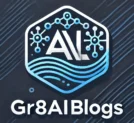As artificial intelligence (AI) continues to evolve, the narrative surrounding its impact on the job market is shifting. Contrary to the traditional view that AI may lead to mass unemployment, recent insights suggest that AI could in fact make workers more efficient and enhance productivity across various sectors. This article delves into the relationship between AI and workforce efficiency, highlighting how these advanced technologies may reshape our workplaces in intriguing and positive ways.
The Evolution of AI in the Workplace
AI has been a transformative force in many industries, from healthcare to finance. As organizations begin to embrace AI tools and technologies, a new paradigm emerges where human intelligence collaborates seamlessly with artificial intelligence. Here are some key points to consider:
- Automation of Repetitive Tasks: By automating mundane tasks, AI frees up valuable human resources to focus on higher-value activities.
- Data Analysis and Decision-Making: AI-powered analytics tools can sift through massive datasets, providing insights that inform smarter, faster decision-making.
- Highly Customizable Solutions: AI systems can be tailored to meet the specific needs of a business, enhancing productivity while reducing waste.
AI as an Efficiency Enhancer
Rather than stealing jobs, AI is more likely to enhance the roles of existing workers. The premise is simple: by augmenting human capabilities, AI technologies can create a more efficient work environment. Here’s how:
Enhanced Collaboration
AI tools provide real-time support, aiding teams in managing projects and collaborating more effectively. For example:
- Smart Assistants: AI-powered assistants can schedule meetings, set reminders, and even analyze email communications.
- Virtual Collaboration Platforms: Tools like Microsoft Teams or Slack integrate AI features that enhance communication, especially in hybrid workplaces.
Accelerated Problem Solving
AI algorithms can process information and run simulations at lightning speed, allowing teams to diagnose problems and devise solutions swiftly:
- Predictive Analytics: Businesses can use AI to anticipate trends, thereby preparing for market changes before they become problems.
- AI-Driven Insights: Organizations can harness data-driven insights to enhance customer engagement, streamline operations, and improve service delivery.
Greater Innovation
With AI taking care of routine tasks, workers have more time to innovate:
- Creative Thinking: Employees can devote their energies to brainstorming and developing innovative solutions.
- Product Development: AI can simulate various scenarios in product development, reducing the time taken from concept to market.
The Human Element: Upskilling and Adaptation
As AI technologies assume a more prominent role in the workplace, a corresponding emphasis on upskilling workers becomes essential. The adaptation of the workforce to new technology can unlock numerous benefits:
- Continuous Learning: Organizations are investing in training programs to help employees learn how to work alongside AI tools effectively.
- Career Growth: Employees who adapt to new technologies can enhance their skill sets, making them more valuable in the job market.
Case Studies: AI Success Stories
Several companies have successfully integrated AI into their operations, highlighting the potential for increased productivity:
- Amazon: Utilizes AI for inventory management and logistics, which streamlines operations and enhances customer satisfaction.
- IBM: Leverages AI to optimize its HR functions, improving hiring processes and employee engagement.
Addressing Potential Challenges
While the outlook for AI in the workplace is largely positive, challenges remain. Addressing these issues will be crucial for ensuring a harmonious integration of AI into work environments:
- Job Displacement: While AI may not lead to widespread job losses, certain roles may evolve or disappear. Reskilling initiatives will be key.
- Ethical Considerations: Companies must confront ethical dilemmas regarding AI decision-making, data use, and employee privacy.
The Bright Future of Work
As we look toward the future, the collaboration between AI and human workers appears not just favorable but necessary. Embracing AI will likely result in:
- Increased Productivity: Businesses will operate more efficiently as AI handles routine tasks.
- Enhanced Creativity: The human workforce will spend more time on creative and strategic thinking.
- Sustainable Business Practices: AI can help organizations identify ways to reduce waste and optimize resources.
In conclusion, while wary predictions about job loss due to AI technologies have persisted, a more nuanced understanding reveals a potential shift toward efficiency and collaboration. Organizations willing to embrace this technological evolution will not only enhance productivity but also create a more engaged and innovative workforce. The future may very well be one where humans and AI coexist harmoniously in the workplace, working toward common goals and innovative solutions.
For those interested in exploring more about the evolving landscape of workplace productivity and intelligent solutions, consider visiting Kensington Guest Suites for insights on how modern workplaces are adapting.
Discover more from
Subscribe to get the latest posts sent to your email.

